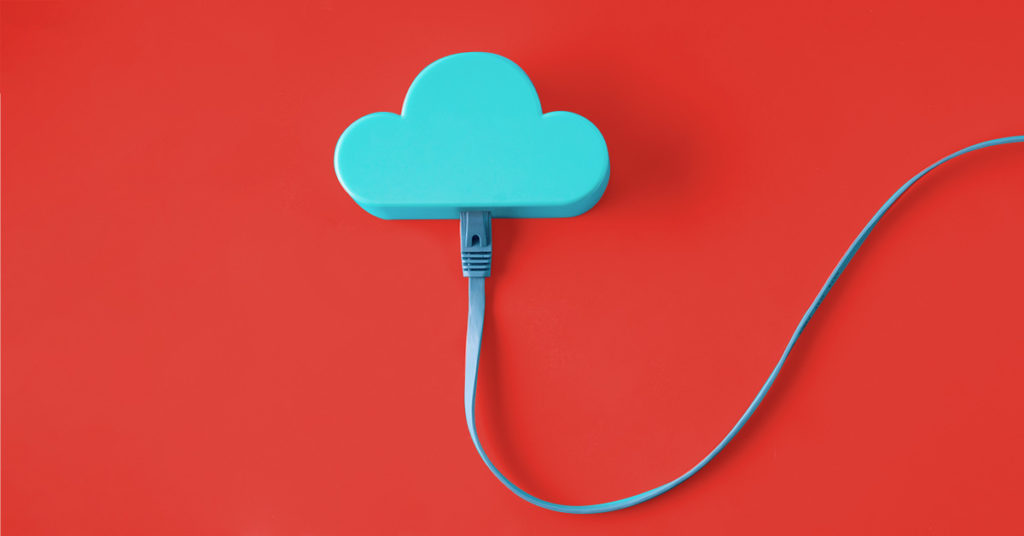
It’s Time To Start Backing Up Your Important Files to the Cloud
Digital data is increasingly important in our work and personal lives. If you have precious documents on your computer—whether it’s a presentation for work, a draft of the novel you’re writing or family photos you treasure—it’s a good idea to take steps to keep them safe.
And the best way to do this is with a cloud backup service. After all, no one wants to lose crucial files to a bit of misfortune.
What is a backup?
A data backup is a copy of your data stored somewhere safe that can be used to restore the original version if something happens to it. This means you will have at least two copies of every important file: the original or primary copy, normally on your smartphone or laptop, and a backup copy stored somewhere else.
Safely backing up data can be challenging, so let’s go through it. Some of the mistakes people make are:
- Moving files to an external hard drive to back them up. If you only have one copy of your important files, you don’t have a backup—even if you’re storing them on your “backup” hard drive. (I’ve lost hundreds of photos by forgetting this.)
- Storing backups with the originals. If you use an external hard drive as a backup device and keep it with your laptop, you could lose both your original files and the backups if someone breaks into your office or your house burns down. Good backups need to be in a separate location; the farther away, the better.
- Not backing up often enough. If you only back up your files every few months, you can still lose a lot of important data if something goes wrong.
Cloud backups are the best way to keep your data safe because they make the whole process easy and automatic. Most of the mistakes above are impossible with a good cloud backup service. Your backups are automatically created every day and kept securely in a data center.
How does cloud backup work?
Cloud backup providers keep your data safe in server farms around the world. When you back up your files, they’re copied over the internet to one of these data centers for storage. If you ever need to restore a file, you just download it. (Or in extreme circumstances, get a large-capacity hard drive mailed to you.)
Most cloud backup apps run automatically in the background. Once they’ve done the initial backup of all your files, they only upload any new files or changes to old files. This keeps their bandwidth requirements reasonably low.
What’s the difference between cloud storage and cloud backup?
Cloud storage and cloud backup are two slightly different services.
Cloud storage is designed to make your files accessible from anywhere, so you can access them from your laptop, smartphone or even a borrowed computer. Dropbox, Google Drive and Box are some of the main examples.
Cloud backups are designed to keep your files safe. You’re able to restore backed up files if you lose the original, but accessing them through the website or app isn’t as convenient as it is with a cloud storage service.
In general, cloud storage is more expensive and has lower storage limits than dedicated cloud backup services, although there is plenty of overlap. The benefit of cloud storage services is that they’re more flexible with how you can manage your files.
What files do I need to back up?
You should back up any files you want to keep safe. For most people, this will be all the files on your smartphone and computer.
Personal cloud storage is increasingly affordable—and even free cloud storage limits are generous enough to protect a lot of important files. In particular, you should make sure any legal documents, contracts and the like are backed up, especially if you don’t have physical copies.
Any photos you take with your smartphone are also worth backing up to a cloud photo storage service. You can back up thousands of photos with just the free limits of something like Google Photos. If you’re a Prime member, Amazon Photos enables you to store unlimited photos.
The only files I’d consider not backing up to the cloud are really large video files. If you ripped your old DVD collection, for example, you could easily have 10 TB of movies. Backing them up could get expensive, and if they’re not emotionally or functionally important, you’re likely to feel comfortable with the risk of losing them.
How do I back up my computer?
If you only want to back up a couple super important files or folders, you can use a cloud storage service like Dropbox or Microsoft OneDrive. Most cloud storage options can be configured to back up specific folders like your Desktop or Documents folder automatically. (Here are the details for OneDrive and Dropbox.)
If you want to back up more files or your full computer hard drive, you’ll need to use a dedicated computer backup service. Backblaze and IDrive are some of the best options here. Backblaze is simpler to use, and iDrive gives you more control of what exactly is backed up. Whichever option you go with, though, your data will be safe.
How do I back up my smartphone?
iPhones are one of the easiest devices to back up. Apple offers iCloud backup, which handles the entire process. To turn it on, go to Settings > [Your Name] > iCloud Backup. Everything will then automatically be kept up to date.
Android phones are a bit trickier, and there’s no one solution that backs up everything in one go. Android Authority has a great tutorial that uses a combination of Google Photos and Google Drive to keep most things backed up. They also have a separate tutorial on backing up your SMS messages.
What kind of internet do I need for backups?
For backups, a fiber connection is best, as it normally has symmetrical upload and download speeds. Other connections tend to offer faster download speeds than upload speeds—but it’s upload speeds you need for backups.
Most cloud backup services intelligently sync data. After the initial backup, which can take a while if you’ve got a slow connection and lots of data, they only upload data that’s changed. In most cases, that will be no more than a few hundred MB every day.
You can also configure most cloud backup apps so that they only upload during set hours, like in the middle of the night, or with capped speeds.
In other words, the faster your internet, the faster your devices will get backed up—so there’s even less chance of you losing any important data. But even without fiber, cloud backups are always a good idea.
Product features may have changed and are subject to change.




Join the conversation